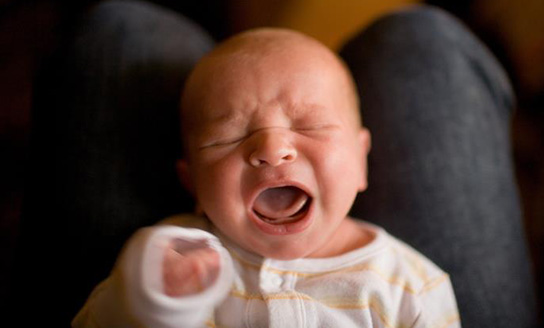What is whooping cough?
Whooping cough, also known as pertussis, is a highly contagious disease that can be very dangerous for pēpi and young children. It is caused by a bacteria called Bordetella pertussis, which attacks the respiratory (breathing) system. The infection causes a severe cough that can last for weeks or even months.
People with whooping cough often make a 'whooping' sound in between bouts of coughing as they gasp for breath.
The coughing spasms can be very distressing, especially in younger tamariki. The below video shows a young pēpi with whooping cough - please note that this may be confronting to watch.
Why is whooping cough dangerous?
Whooping cough can be very serious when babies or young tamariki (especially those under one year old) catch it. In babies under one year old, whooping cough can stop them from breathing or feeding properly. This means they can become very unwell and may need to go to hospital.
Whooping cough can lead to serious complications like pneumonia and brain damage. Around half of pēpi under 12 who catch whooping cough need to go to hospital, and 2 in every 100 in hospital die from the disease.
Call 111 and ask for an ambulance if you or your tamariki are:
- having trouble breathing
- coughing for long periods that may end in vomiting
- turning blue from coughing
How do you catch whooping cough?
Whooping cough spreads very easily through infected air droplets when infected people cough or sneeze. Someone who has whooping cough may be infectious before they start coughing.
Pēpi and young children who have not been immunised are at risk of catching whooping cough from siblings, parents or other family members.
What are the symptoms of whooping cough?
The first symptoms of whooping cough usually appear around one week after being infected and are similar to a common cold:
After around one week, the typical 'whooping cough' bouts appear – these are uncontrollable coughing fits that can last for several minutes, with a thick mucus that can cause vomiting or choking. Young pēpi may turn blue after bad coughing spasms.
The gasping or 'whooping' sound in between coughing fits is common but doesn't happen for everyone who catches whooping cough.
How do I look after a pēpi or tamariki with whooping cough?
If you think you or someone in your whānau has whooping cough, contact your GP or healthcare provider who can set up a swab test to confirm this.
Stay home and isolate according to your healthcare provider's instructions. Health NZ has more information on how long to isolate when someone has whooping cough.
Staying home with whooping cough
Treatment depends on how severe the disease is and how long it's been present. It may need antibiotics to kill the bacteria if caught early, but otherwise there is no medicine that can stop the cough once it has started.
To treat whooping cough at home, you can help manage the symptoms by:
- keeping tamariki hydrated – if you are breastfeeding pēpi they may need to feed more often, while older tamariki need regular fluids and may find warm drinks help soothe the coughing
- staying away from things that make the coughing worse, like cigarette and vape smoke.
It can take a long time to recover from whooping cough – in some cases the cough can stay around for months.
How can I protect against whooping cough?
The best way to protect your tamariki and your whānau from whooping cough is to get immunised. It's safe, and it's free for tamariki and during pregnancy.
Immunisation for pēpi
In New Zealand, babies are immunised against whooping cough at ages six weeks, three months and five months, then again at ages four and 11 years. They are not fully protected from whooping cough until they have had their first three doses.
Find out more about diseases we immunise against.
Immunisation during pregnancy
If you are pregnant, you can get a whooping cough booster shot for free to help protect your baby.
Vaccines stimulate your own immune system to make antibodies that can fight off disease. Some of this immunity is passed to pēpi during pregnancy, helping to protect newborn babies during the first few weeks of life, until they can be immunised.
You can get immunised during your second or third trimester – any time after 16 weeks.
Immunity to whooping cough decreases over time, so adults can catch the disease even if they were immunised in the past or have previously had the disease. That is why it's recommended to get a booster shot each time you are pregnant.
What do I do if my child has been in contact with whooping cough?
If your tamariki has been in close contact with someone who has whooping cough, contact your GP or health provider. They may be able to prescribe antibiotics that can help prevent your tamariki getting sick.
If your pēpi is under one year old, was born premature, or has a heart or lung condition, it's very important to see a doctor.
Call 111 and ask for an ambulance if your tamariki is having trouble breathing, coughing for long periods that may end in vomiting, or turning blue from coughing.
If you're feeling unsure or would like more information, you can call PlunketLine 24/7 on 0800 933 922 to speak to a nurse for free advice and support.
Live Chat: What you need to know about whooping cough
Our Chief Nurse, Dr Zoë Tipa (Kai Tahu, Kahungunu) and President of The Paediatric Society of New Zealand, Dr Owen Sinclair (Te Rarawa), held a live chat to talk about whooping cough, its symptoms, and why immunisation is critical for protecting your whānau. You can watch the chat below.
More information on whooping cough
